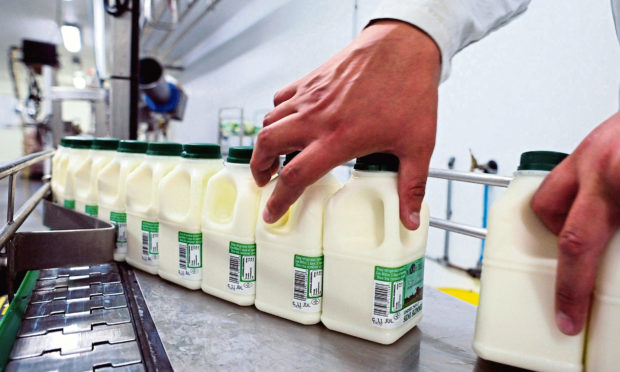Agricultural businesses are well used to volatility: the only certainty is uncertainty, as the old saying goes.
Throughout the current pandemic and looking ahead to the impact of Brexit, food and drink supply chains seem to be as imbalanced as ever, where the lion’s share of control, and with it margin, is held by multiple retailers – with that power and margin diminishing down the chain to the primary producer.
What the last few months have shown is that these supply chains can be resilient, but it takes planning and collaboration to make quick changes to their working. Red meat, for example, saw huge swings in price in a short period of time. Many have taken the opportunity to deal directly with consumers and reap those benefits, likewise many consumers were impressed, not only with the quality of produce but also the knowledge that comes with it.
In an increasingly global market, it is unlikely that every producer can sell direct to the public but more can be done to create balance within this chain.
The current consultation being undertaken by Defra into milk supply contracts is hugely important in this regard. However, to my mind it is not simply about dairy – it is highlighting the opportunities for agriculture and food producers to work within the supply chain and really feel part of it.
How often have we heard of the huge success of Scotch whisky followed by arable farmers not seeing any benefit from this while producing quality malting barley at or below the cost of production?
One of the suggestions within the consultation is to have legislation which enables producers to collaborate and work with buyers to agree a price. This does not automatically mean the price paid will rise but it will increase the understanding of the reasons behind the pricing and enable a better relationship to be built.
Alongside this, a closer working relationship should create opportunities for value to be added jointly and for the benefit of all involved simply by having these open and transparent conversations. There are already good examples of this practice and examples of buyers who work well with their suppliers. It also creates a responsibility on the producers to understand their market better and be well represented. This is currently about dairy, but the model and lessons are there for all sectors.
On a separate note, another issue we are looking at and is moving up the political agenda is the Dogs (Protection of Livestock) (Scotland) Bill, which is beginning is journey through the Scottish Parliament. This has been a long term issue which has blighted many businesses and individuals and serious action has been desperately needed. Scotland has the right to responsible access and although a code is in place, there is a need to strengthen the duty for access takers to act responsibly while walking with dogs. It is also an opportunity to widen the definition of worrying to reflect modern farming practices and species such as deer, game birds and buffalo.
The pandemic period has shown more than ever that livestock worrying is a serious issue and over the coming months Scottish Land & Estates will be working to ensure that this bill is fit for purpose and sends a clear message that such behavior should not have to be tolerated by our farmers and land managers.
Stephen Young is head of policy at Scottish Land & Estates
